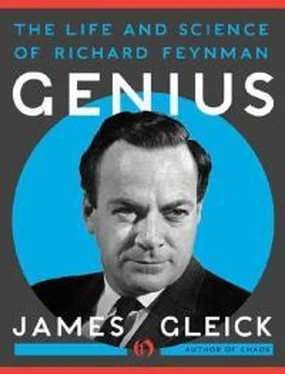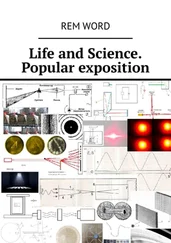The University at Peace
Their remarkable change in status buffeted every American institution that made a home for physicists. At Cornel , President Edmund Ezra Day was one of the first to feel the force of the transition, in the stark contrast between two budget meetings with his physicists, one during and one after the war.
In the first, he sat down with his chief experimentalist, Robert F. Bacher, who was setting off on his leave of absence; ultimately Bacher led the bomb project’s experimental physics division. Bacher pleaded for a cyclotron like those at Berkeley and Princeton. He pressed Day to find a way of providing operating costs that he said might amount to as much as a professor’s salary, from four thousand to five thousand dol ars a year.
In the second, two months after Hiroshima, Day’s physicists told him that a far more powerful accelerator would be required, along with a new laboratory to house it.
This time they asked for a capital expenditure of $3,000,000 and an operating budget that would begin at $250,000. They suggested, furthermore, that without this commitment they would have to look elsewhere for a more propitious environment for nuclear science. The trustees had no obvious source of funds, but after a heated meeting with Day they voted unanimously to proceed. Day declared:
“The problem is not to control nuclear forces but to control nuclear physicists. They are in tremendous demand, and at a frightful premium.” Bacher himself, after returning to Cornel briefly, left for Washington to serve as the first scientist on the newly formed Atomic Energy Commission.
Three years later Cornel had a new accelerator, a synchrotron. The trustees’ leap of faith had been vindicated by generous funding from the Office of Naval Research.
Three years after that, the synchrotron had passed into obsolescence and a new version was already under construction.
Feynman’s first glimpse of the postwar university came in the dead of night before the start of classes in the fal of 1945. Ithaca was a vil age at the dimmest reaches of a New York City boy’s sense of his state’s geography, practical y in Ohio. He made the journey by train, using the long hours to begin sketching out a basic graduate course he was supposed to teach in mathematical methods for physicists. He debarked with a single suitcase and a self-
conscious sense of being, final y, a professor. He suppressed the urge to sling his bag over his shoulder as usual. Instead he let a porter guide him to the rear seat of a taxicab. He told the driver to take him to the biggest hotel in town.
In Ithaca, as in towns and cities across America that fal , the hotels and short-term apartments were booked.
Housing was scarce. With demobilization col ege enrol ments were exploding. Boom was in the air. Even sleepy Ithaca seemed like a Western town amid the gold rush. Cornel was building houses and barracks at emergency speed. The week before Feynman arrived, five new barracks burned down. He tried a second hotel. Then he realized he could not afford to wander by taxicab, so he checked his suitcase and began to walk, past darkened houses and dormitories. He realized he must have found Cornel . Huge raked piles of leaves dotted the campus, and they started to look like beds—if only he could find one out of the glare of the streetlights. Final y he spotted an open building with couches in the lobby and asked the janitor if he could spend the night on one. He explained awkwardly that he was a new professor.
The next morning he washed as wel as he could in the public bathroom, checked in at the physics department, and made his way to a campus housing office in Wil ard Straight Hal , near the center of the sloping campus. There a clerk told him haughtily that the housing situation was so bad that last night a professor had had to sleep in the lobby. “Look, buddy,” Feynman snapped back, “I’m that
professor. Now do something for me.” He was unpleasantly startled to realize that in a town Ithaca’s size he could set off a rumor and circle back into its wake within a matter of hours. He also began to realize that he was going to have to readjust his internal clock. The war had left him with a sense of urgency about appointments and deadlines. Even as ten thousand undergraduates arrived, Cornel seemed slack. He was surprised to discover that the administration had scheduled a ful week with nothing for him to do but explore the campus and prepare for classes. Speech patterns struck him as slow, with none of the beep-beep-beep nervousness he had got used to. People took time to talk about the weather.
His first months were lonely. None of his close col eagues had been in such a hurry to begin postwar life.
Even Bethe did not leave Los Alamos for Cornel until December. The school year began late and stayed unsettled. Space ran short. Workers subdivided rooms in Rockefel er Hal . Closets became offices. Outside, three tennis courts gave way to hasty wooden barracks.
Feynman soon shared his dingy Rockefel er office with a col eague from Los Alamos, Philip Morrison, who had carried the atomic bomb’s plutonium core to Alamogordo in the back seat of an army sedan. Morrison had been lured by the sweet, serious Bethe, so ful of integrity—and also by Feynman, though it now seemed, surprisingly, that Feynman was depressed and lonely. Bethe sensed this, too, but few others noticed. Later Bethe noted dryly,
“Feynman depressed is just a little more cheerful than any
other person when he is exuberant.”
He spent time in the library reading the mildly bawdy Arabian Nights and staring hopeful y at women. Unlike most of the Ivy League universities, Cornel had accepted women as undergraduates since its founding, after the Civil War, though they automatical y matriculated in the Col ege of Home Economics. He went to freshman dances and ate in the student cafeteria. He looked younger than his twenty-seven years, and he did not stand out amid al the returning servicemen. His dance partners looked askance at what sounded like a line—that he was a physicist just back from building the atomic bomb. He missed Arline. Even before leaving Los Alamos he had begun dating other women—
especial y beautiful women, in what some of his friends saw as a frenetic, razor-edge denial of grief.
A gulf had opened between Feynman and his mother.
Lucil e, after so adamantly opposing Richard’s marriage, had written painful y on Arline’s death:
… now I want you to know that I’m proud and glad you married her & did what you could to make her short life happy. She worshipped you. Forgive me for not seeing things your way. I was frightened for you—
for what you would have to bear. But you bore it so wel . Now try to face life without her …
Begging him to come home, she promised him piles of rice and sugar buns and gave her word that no one would tel him to comb his hair. He did come, briefly, for a few days in
July. Then, in August, the news of the atomic bomb broke over the household like a lightning storm. Friends and relatives cal ed almost continuously. Lucil e tried in vain to get through to Santa Fe by telephone. One cousin cal ed from a wire-service office to read a comment of Oppenheimer’s that had just come across the ticker. After 11 P.M. the phone rang and a voice said, “This is the Princeton Triangle . Is it true that your son R. P. Feynman had more gravy stains on his gown that any other man at the Graduate Col ege in 1940?” It was another cousin.
“I have a sense of humor, too,” Lucil e wrote to Richard,
“but I don’t think this is a funny occasion.”
I felt thril ed & frightened at your part in this tremendous thing. No one can be real y joyous. It is with horror that I listen to the death & destruction the bomb has caused… . I pray that this horrible destruction of man by man may be the climax of al such destruction… . No wonder I thought you were nervous. Who wouldn’t be, playing around in such a dangerous place.
Читать дальше












